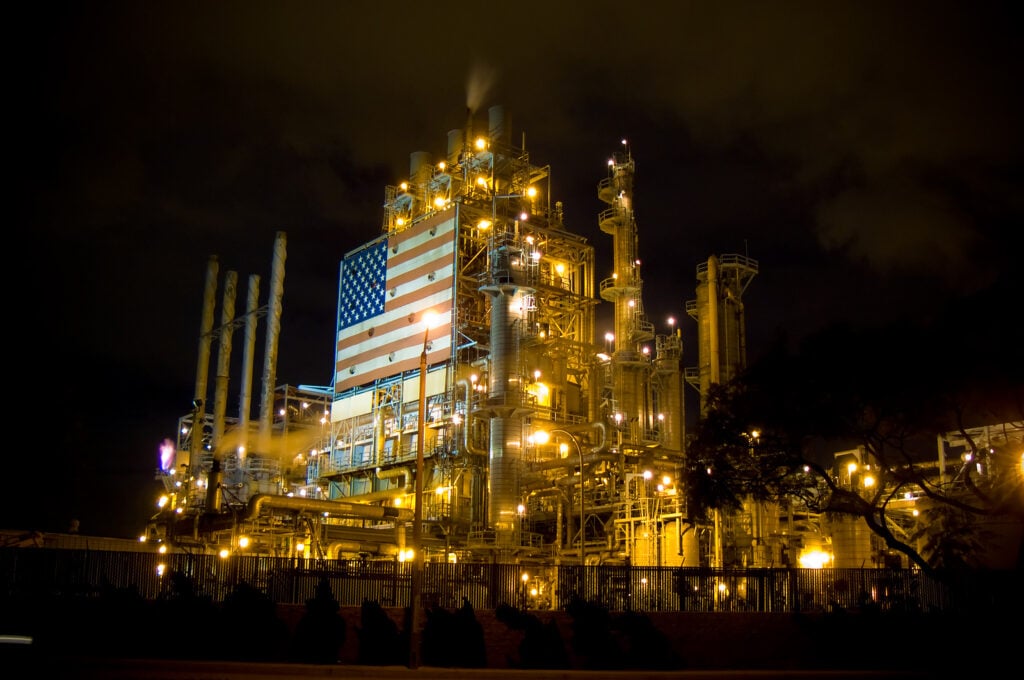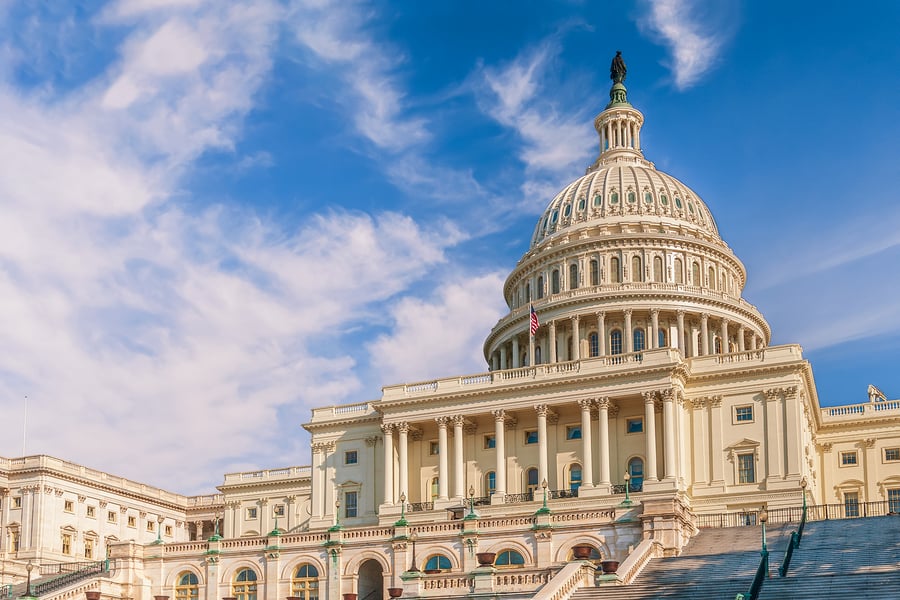Biden Backs Corrupt Dictators Over American Energy Producers
President Biden is continuing with his program of “anywhere but the United States” when it comes to oil investment and future production. The United States is allowing Chevron to resume pumping oil from its Venezuelan oil fields that U.S. sanctions had halted almost three years ago. The license was granted to Chevron after President Nicolás Maduro’s government agreed to implement an estimated $3 billion humanitarian relief program and continue dialogue in Mexico City to supposedly hold free and fair elections. The license, granted by the Treasury Department for six months, allows Chevron to return to its oil fields in joint ventures with the Venezuela national oil company, Petroleos de Venezuela SA (PdVSA). Venezuela is, as Democratic Senator Menendez of New Jersey noted, a criminal dictatorship with some of the worst human rights violations in the world. The idea that Maduro is going to implement free and fair elections is a pipe dream that Biden touts so that he can obtain oil from Venezuela while eventually destroying the U.S. oil and gas industry. Maduro is so blatant in his election abuses that on January 10, 2019, the Organization of American States (OAS) Permanent Council approved a resolution to not recognize the Nicolas Maduro dictatorship.
Chevron is also allowed to resume oil exports that were halted since 2019 when the United States increased sanctions against Venezuela. All exports should go to the United States and the company will be allowed to import feedstocks, including diluents used to bolster oil production, from the United States. In 2020, before the United States ordered a complete halt of drilling operations, Chevron’s share of Venezuelan oil production was 15,000 barrels a day–less than the production of a single oil field in the Permian Basin. Under the new license, Chevron will be able to repair and do maintenance in existing oil fields, but new drilling is not authorized. Venezuela’s destruction of their oil industry is widespread and the money grifted is used to buy votes, as in the case of keeping gasoline prices as low as 9 cents per gallon in their urban stronghold of Caracas.
According to the Biden administration, the license prohibits PdVSA from receiving profits from Chevron’s oil sales. Under the new license, profits from the sale of oil are supposed to go toward repaying debt owed to Chevron by PdVSA. Chevron plans to restore lost output as it performs maintenance and other essential work, but it will not attempt major work that would require new investments in the country’s oil fields until debts of $4.2 billion are repaid, which could take about two to three years depending on oil-market conditions.
The United States will require that Chevron report details of its financial operations to ensure transparency. According to Chevron, the new license allows it to commercialize the oil currently being produced at its joint-venture assets, which it will do in compliance with the current framework. The license prohibits Chevron from paying taxes and royalties to the Venezuelan government.
Venezuela produces about 700,000 barrels of oil a day, compared with more than 3 million barrels a day in the 1990s. Some analysts believe Venezuela could hit 1 million barrels a day in the medium term, a modest increment. Current U.S. rules prohibit both American and foreign companies from buying Venezuelan oil. To skirt sanctions, PdVSA had rerouted oil cargoes away from obscure export channels and to mostly Chinese buyers at a steep discount. China has lent more money to Venezuela than any other country in the world, with much of the collateral in promised oil. Biden’s move to increase Venezuelan oil production thus makes China’s economic situation stronger relating to their vast lending to the Venezuelan government.
The multibillion-dollar humanitarian agreement — a verbal accord that has not yet been signed by the Maduro government — amounts to a concession by Mr. Maduro, who has long denied the scope of the humanitarian crisis in Venezuela. The estimated $3 billion in frozen funds intended for humanitarian relief and infrastructure projects in Venezuela would be administered by the United Nations, taking years to fully implement. The Venezuelan state funds frozen in overseas banks by sanctions are expected to be used to alleviate the country’s health, food and electric-power crises in part by building infrastructure for electricity and water-treatment needs, freeing up monies for Maduro to spread around to his political allies in the business community. More than seven million Venezuelans, a quarter of the population, have fled to other nations under the Maduro dictatorship and recently, a record number of Venezuelans have arrived at the U.S. border for asylum.
Conclusion
Biden’s nonsensical energy policy is bad for the U.S. economy, harmful to U.S. national security, and a way to aid and abet enemies of freedom. Rather than sticking with President Trump’s America First energy policy, Biden prefers to get our oil and gas from Russia, Iran, Venezuela, and other OPEC nations, while denying our ally and neighbor, Canada, further access to transportation across the border. The United States under President Trump’s energy policy became energy independent for the first time in decades and was able to remove OPEC’s power to set oil prices. Increased domestic production alleviated the need for imports from Venezuela, making supplies from communist dictatorships unnecessary.
Biden, through his anti-U.S. oil and gas policies and by refusing to lease federal lands to expand U.S. oil production in states like Alaska, Oklahoma, North Dakota, New Mexico and Texas, is increasing oil prices and gasoline and diesel prices for consumers not only in the United States, but worldwide. Moreover, he is courting totalitarians and strengthening them by buying their oil. The Biden administration should allow American energy producers to unleash domestic production instead of begging dictators for oil.
*This article was adapted from content originally published by the Institute for Energy Research.



